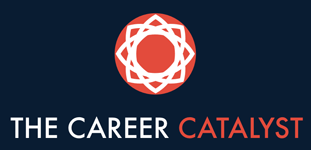
Interviews these days are fraught! You may get asked to do multiple rounds. You might get tested or asked to perform a task beforehand. You may have to get through one of the notorious “one-way” interviews without another human on the other end.
It’s a lot!
But you’re up to it.
Here’s what you need to know so you can interview with confidence.
1. Know your audience. At least as much as possible. Before your interview, look up who’s interviewing you (if you have that info), and review the company’s website. Look through any pictures they’ve posted to see if you can get a feel for them. Check their charitable contributions if that information is available. The more you know about them, the better able you’ll be to speak to them and their concerns. Bonus: you’ll also have some insight on how to dress for the interview because you’ve seen what they wear in their daily work lives.
2. Know the role. Review the job posting. Note anything particularly interesting from it, including tone, responsibilities, and required skills. Make some notes for yourself so you remember to speak to those points. Demonstrate your enthusiasm where appropriate. Be clear about how the things they ask for are things you have. (See below.)
3. Know yourself. Review your history and remind yourself of your strengths and accomplishments. Match these to the key elements of the job description. Jot down anything you want to be sure to mention, with a focus on how you’re a good fit for the role. Remember, a lot of your experience will overlap with what they’re seeking, but it may be framed differently in your mind. Think about how to translate what you’ve done to the things they’re asking for. This may require some creative thinking, but you applied for the job because you felt you could do it! Often this just requires a reframe, so write these things out.
4. Know your stories. The more you can tell stories, with a beginning, a middle, and an end (sometimes called STAR or CAR stories), the more your interviewers will begin to imagine you doing the tasks of the job. Have stories ready for things directly related to the job description, as well as general stories of your successes, times you learned something the hard way, times you worked with people, and why you’re interested and qualified for this role. These notes, along with the ones about the role and your strengths, are things you can have in front of you during the interview.
5. Know that it’s okay to ask questions. Not just at the end, when they ask if you have any (although it’s important to have some then), but also during the main part of the interview. You can ask them to clarify or repeat something they’ve just said. You can ask them to define a term you’re not familiar with. You can ask them about the technology they use and the training for new staff. Avoid questions about salary, benefits (unless they ask you first), or the personal lives of the interviewers. If they asked you a strange question, turn it back around on them! And you should absolutely ask about next steps in the process. Their timeline will almost certainly be optimistic, but at least you’ll know what they’re aiming for.



